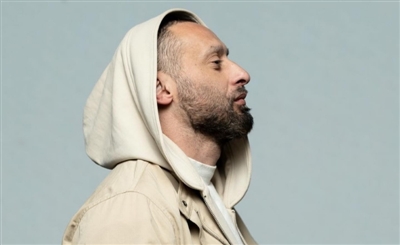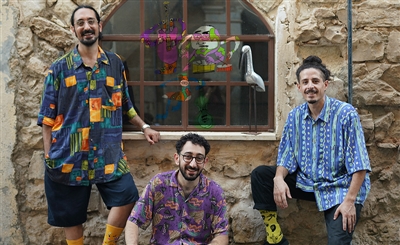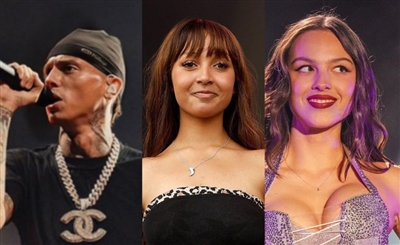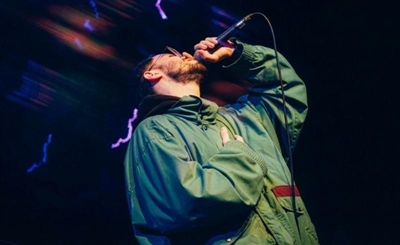Ruba Shamshoum EP ‘Risha’ is a Dreamy Ode to Femininity & Arabic Verse
The eclectic, rich release also celebrates the different relationships of love through human connection - to one another, to nature and to oneself.
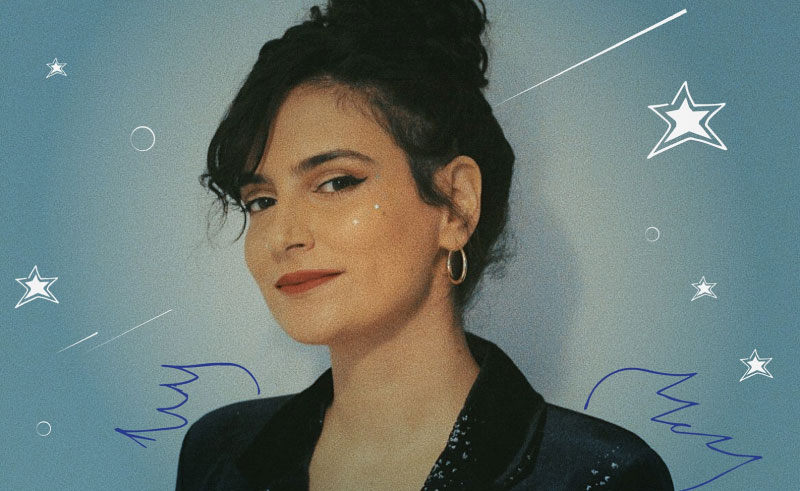
Coming as an ode to her mother tongue and freedom through femininity, Ruba Shamshoum’s latest EP, Risha, is an album steeped in meaning and significance, both on a personal level for the Palestinian singer-songwriter and as a commentary on these weighty topics and their wider relevance to the world today.
Described as an ‘open letter to femininity’, the five track EP boasts looping incorporations of live instruments, with Manu Delago on hang drum and percussion, and Nina Harries on double bass, which come together with various electronic sounds to provide a spectrum of emotions through a poetic dream-pop aesthetic.
The EP starts off with the record’s namesake, ‘Risha’, which is the ultimate siren song - mythological, intangible and undeniably otherworldly. Similar to stepping through a portal, it takes all but 15 seconds to be entranced by the gateway Shamshoum’s echoed lilting vocalisations seem to open up, setting the tone for the rest of the EP.
“In the song ‘Risha’ (Arabic for feather), I’m talking about and as a feather that has decided to leave the bird in order to truly discover what lies behind the clouds,” said Shamshoum told SceneNoise. “To me, this is a central part of femininity; flying around, discovering who you are, and really just allowing yourself that privilege of release and self discovery”. Feather-Ruba sings lyrics of being dazzled by the rainbow hidden behind the clouds and essentially embarking on an adventure sparked by the dalliance she encounters with a spectrum she was otherwise privy to.
Besides the twinkling vocals that carries us through the length of the whole record, an integral pillar to the EP is her masterful use of Arabic verse and prose. Being Palestinian, yet having studied in Ireland and being based in London, that came as no easy feat. Nevertheless, there’s an unmistakable air of empowerment expressing oneself in their mother tongue and every verse carries that much more gravitas
“At first, I had this obstacle of ‘Can I even write in Arabic’ because I felt like I had a responsibility towards the language, especially with the issue of gatekeeping what constitutes Arabic art - it scared me in the beginning,” she continues. “With Risha, however, all of this changed. I allowed myself to write, as a poet, to give myself complete creative liberty to express myself and play with the language as I desire. Making this EP, I realised it’s just as much my language as it is anyone else’s and I'm allowed to play around with it. I found it extremely fun to play around with ‘mufradat’ that aren’t usually used.”
The record is everything you’d expect it to sound like having been associated with the dream pop genre. The EP boasts other tracks like ‘Moonlight’, a delightful, nurturing, breezy song about the singer’s nephew. Authentic and undeniably stemming from her rich heart space that she generously shares with listeners, the track examines life’s cycles and the experiences awaiting him. This shows a different facet of femininity, one that is more fluid, more agile. That’s the thing about femininity that Ruba gets absolutely spot on - the feminine is undeniably dynamic, ever-evolving, layered, multidimensional and the experience of femininity is part and parcel of coming to terms with exactly that; a notion Risha artfully dances along and commands listeners to grasp with every stroke of a hang-drum. Fearless, the song ‘Sununua’ plays with themes of defying society’s impositions of women acting, yet on ‘Winti Hon’, an ode to her husband, we also see a femininity thats far less adventurous and far softer than its counterpart and that’s just as valid a notion of femininity as being bold and valiant as a feather leaving behind its home.“Femininity for me is something that cannot be contained in a mould, a shape, or a structure. It’s free to roam, to change and to be,” she explains. “The whole EP is meant to be very dreamy in terms of sounds, its celestial, very fairy-like, I wanted an element of fantasy combined with something profound to say about myself and inspiration in general. I would like people to come into that world I've created, I tried to create a different world, if you go from one song to another it's like you go through that journey from one place to another”.
- Previous Article test list 1 noise 2024-03-13
- Next Article Rapper Uzu Continues Hot Streak with Surprise New Single ‘Cayrolin’



